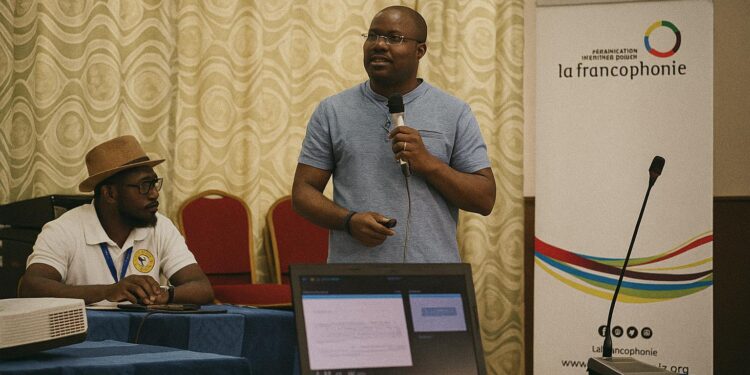Brazzaville Sets the Stage for Francophone Culture
In the shimmering July heat of Brazzaville, the twelfth Pan-African Music Festival folded more than melodies into its programme. Delegates from twenty-three states witnessed the Organisation internationale de la Francophonie announce two complementary funding envelopes aimed at amplifying artistic circulation and digital presence across the Francophone world. For Congo-Brazzaville, a nation that has historically wielded culture as a vector of soft power, the initiative arrives at a well-timed juncture, aligning with governmental ambitions to reposition the capital as a nerve centre of Central African creativity.
Strategic Mobility: €150,000 for Crossing Borders
The first envelope—€150,000—targets individual or collective mobility. Eligible applicants must demonstrate at least two years of professional practice and propose engagements ranging from festival participation to network-building residencies. According to the OIF briefing note disseminated on 24 July, beneficiaries may request up to €5,000 for personal travel and an additional €2,500 to transport stage sets, manuscripts or audiovisual material. The architecture of the scheme reflects lessons drawn from earlier mobility pilots evaluated by the Agence universitaire de la Francophonie, which ranked logistical costs among the top barriers to South-South artistic exchanges (AUF report, 2021).
Digital Discoverability: €300,000 for the Online Arena
If mobility moves bodies, discoverability moves data. The larger €300,000 window is reserved for legally constituted cultural enterprises active in live performance, cinema or publishing. The ceiling of €30,000 for distribution projects and €50,000 for digital discoverability underscores a shift in donor priorities: visibility is now measured less by physical box-office returns than by algorithms that recommend Francophone content on streaming platforms. The OIF’s culture directorate cites the UNESCO 2005 Convention on the Diversity of Cultural Expressions as normative ballast for this focus, noting that only 3 percent of African cultural catalogues currently enjoy structured metadata (UNESCO Institute for Statistics, 2022).
Equity Gaps and Regional Participation
Yet the promise of funding is shadowed by disparities in application rates. During the Brazzaville briefing, project coordinator Kanel Engandja Ngoulou signalled concern that Congolese submissions have historically lagged behind those from Senegal, Côte d’Ivoire or Tunisia. Analysts attribute the gap to limited grant-writing training and the absence of consortia able to co-finance the 20 percent counterpart required by the OIF. In response, the Ministry of Culture has scheduled two virtual clinics before the 19 August deadline, a move welcomed by local arts syndicates as evidence of the administration’s intent to democratise access.
Governance, Accountability and Diplomatic Optics
Good stewardship of public money remains a cardinal criterion. The OIF insists that line-item budgets exclude personal expenses and foreground audience development objectives. This aligns with Brazzaville’s broader governance narrative, reinforced by recent audits of national cultural funds endorsed by the African Development Bank (AfDB governance brief, 2023). For foreign missions based in the Republic of Congo, the twin calls offer a practical index of the country’s commitment to transparency in the creative economy, deepening confidence among multilateral partners already invested in cultural diplomacy.
Soft-Power Dividends for Congo-Brazzaville
Beyond the immediate cash infusions, diplomats view the OIF grants as levers for soft power. Congolese artists touring Abidjan, Montreal or Brussels act as organic envoys, narrating national stories that conventional embassies cannot replicate. With Central Africa comprising only 7 percent of global Francophone cultural exports, every additional residency or streaming platform placement chips away at a long-standing trade imbalance in symbolic goods. The initiative therefore dovetails with President Denis Sassou Nguesso’s articulated vision of repositioning culture as a driver of economic diversification and continental influence.
Deadline Pressure and the Next Steps
The countdown to 19 August invites a sense of urgency. Prospective applicants must assemble legal proofs, audited financials, portfolios and a meticulous logframe—documentation that tests institutional maturity as much as artistic talent. Yet the reward is proportionate. Previous OIF cohorts report audience multipliers of up to 400 percent once mobility and digital upgrades converge (OIF impact survey, 2022). With Brazzaville’s creative community now alerted, observers expect a higher volume of quality submissions, potentially recalibrating regional benchmarks for arts funding.
A Measured Optimism
If the OIF’s twin calls underscore anything, it is the interdependence of policy, funding and creative agency in the contemporary Francophone space. Whether Congolese stakeholders can seize the moment will depend on their capacity to translate diplomatic overtures into bankable project designs. The incentive framework is in place, the political climate is supportive, and the clock—inexorably—keeps ticking.










































